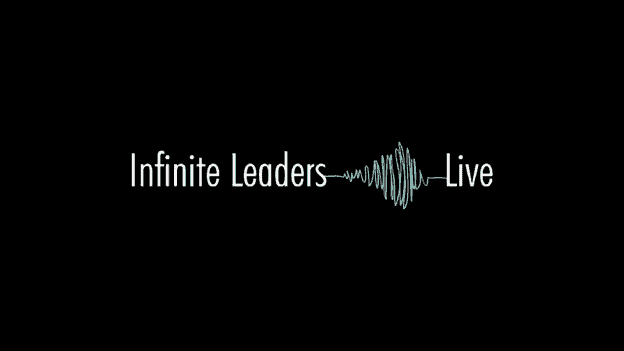
Leadership Lessons
This infinite leadership lessons guest blog is the second of two parts and features gems of wisdom 7-12 from Lewis and Alan. If you missed part 1, access it here.
‘Very great change starts from very small conversations, held by people that care.’
Margaret J Wheatley
Whether introverts, extroverts, data analysts or public speakers, we are hardwired for connection. The only way we can truly flourish in life is to connect with others.
Infinite Leaders: Live is a podcast that explores the experiences, habits and secrets of inspirational leaders, coaches, educators and entrepreneurs from around the world through the power of conversation.
Here we zoom in on 12 ‘Gems Of Wisdom’ — common themes of our conversations across the first 52 episodes, recorded in 52 weeks between June 2020 and June 2021.
Hopefully, you’ll find one or two small and valuable enough to slip into your pocket and help you along your leadership journey!

theinfinitelearners.com
-
“Once you stop learning, you start dying.”
This quote by Albert Einstein is as relevant in today’s fast-paced world as it was in the early 20th century.
The concept of open-ended, infinite learning was the premise on which we started our podcast; to support those in the education profession to be better educators and be better humans — embracing the learning journey and appreciating no one has all the answers.
During a no-nonsense conversation on episode 20 with Steve Sallis (Author of ‘Educating Football’ and CEO of Solutions Mindset), he posed the question: Do you want to be the downgrade teacher?
Every student has had a ‘best’ teacher; they have seen it and felt it. Are you that person, or will you be a downgrade? It is up to us as individuals to recognise our strengths and where we lack skills we’d like to develop.
Takeaway: Be conscious of your competencies and incompetencies, be open to feedback and never stop learning.
-
Be Prepared To Take Risks
Courage: “the ability to do something that frightens one; bravery.”
Oxford Dictionary
We often hear people talking about courage, but it is a quality that needs to be seen to have any impact.
Vanita Uppal OBE (Director of The British School, New Delhi) shared an incredible story during episode 23.
Vanita was held at the gate of her school by a security guard; an armed intruder had reportedly got onto campus. Armed with an AK47, the intruder sat in the bathroom, threatening to gun down anyone in his path.
Vanita immediately locked down the campus and informed the Police, but there were scores of parents already on campus to collect their children from the Nursery.
As the school sat in silence, Vanita made herself visible to the parents as they asked what was happening. Her knees trembling, Vanita poured herself a cup of coffee and assured parents all was in hand, and the security guards flurry of activity was down to a routine security check.
For two hours as media and TV crews arrived, Vanita organised the safe passage of children home to their families, all in a calm and orderly manner. The vast majority were unaware of what was unfolding until later that afternoon, when they were home safe and sound.
Takeaway: Risks cannot be avoided; having the courage to accept fear may help. In many cases, it may help to think of FEAR as ‘false evidence appearing real.

-
Choose Positivity
Our mindsets have a direct impact on our mood, wellbeing and relationships.
For episode 44, we invited James Coppinger (former professional footballer) to talk about what has motivated him in a 22-year career, boasting over 800 professional appearances.
James never has a bad day, his mood is a direct result of the mindset he chooses to adopt daily, but it wasn’t always that way.
Having played for England Under 17’s at 16, James signed for Newcastle United at 18 and made his Premier League debut a year later. By the age of 21, James was sold by Sir Bobby Robson and relegated from the Football League. His parents had divorced, and his hero, his Grandfather, had passed away.
This led to negativity, excuses and apportioning blame.
A meeting with specialist performance Terry Gormley changed James’ life forever;
James began to acknowledge his perception of self and verbalised it. He lacked confidence, had low levels of self-belief, and he was ashamed at feeling sorry for himself. Terry asked him what his Grandad would think; James broke down in tears.
James now lives by his own Positivity Mindset:
- What you think dictates how you feel
- How you feel dictates how you act
- How you act determines your results
We can control and change our thinking whenever we like. It starts with the small things and has a significant impact on our wider life.
Takeaway: Life chips away at us, and if we let it, we become dull and damaged, a shadow of our former selves. Choose positivity.

pexels.com
-
Change Takes Time
There are many phrases still used in education that should be placed in room 101 forever, “We have always done it like this” is high on our list.
In our first ever episode, Simon Mann (International School Principal & Consultant) talked about change being like turning an oil tanker; it takes forever to start the turn, but it takes some stopping once it starts.
In large organisations, it can be hard to create momentum to make positive changes due to policies, tradition and an institutionalised way of thinking, but even here, change is possible.
Takeaway: Change can happen, even if it’s slow to start. What you say and how you act is being observed by colleagues daily — stay consistent and be patient.

pexels.com
-
Get The Right People On The Bus
Hiring the best professionals and paying the highest wages isn’t enough to ensure success. Schools and organisations need people that are passionate, skilled and committed to a clear, shared purpose.
During episode 12, Professor Damian Hughes (Author and co-host of the High-Performance Podcast) told us how the right culture, carefully nurtured over time, can create incredible results.
By focusing on non-negotiable trademark behaviours, humility, and emotional awareness, organisations can create a ‘Commitment Culture’.
Removing ambiguity means colleagues know the ‘rules of the game’ and can decide whether these align with their passions and skills. If so, fantastic, they are likely to become part of the commitment culture. If not, their skill set may be better placed elsewhere, and that’s fine too.
Takeaway: Identify non-negotiables within your team, make these known and make them clear with example behaviours — this is the starting point to making sure you have the right people on board.

pexels.com
-
Be Kind
In a fast-paced, unpredictable world, choosing to be kind is a superpower.
In episode 50, Terry Gormley (Human Behaviour Specialist) shared the excellent line:
“You can never get it wrong if you do the right thing.”
Aligning your behaviours to your values reduces conflict in your inner world. It allows your external mind to look for the good in others, presume positive intentions and provide space to be kind and considerate in your interactions.
Kindness can often be mistaken for a weakness in the leadership world but remember, education is about developing people, not generating profit.
Teachers enter teaching, not for the income but the outcomes — the smiles, the learning moments, the results and connections.
We are responsible for moulding the future generation and planting trees we may never see grow. Ask yourself; why do I teach?
Infinite Leadership Lessons – Takeaway: Be kind. It is not a weakness.
—
About the Authors
Alan Dunstan and Lewis Keens are qualified PE teachers. They have worked in UK-based and British International Schools for a combined 33 years and pride themselves on supporting staff and students to reflect, innovate and improve.
Having grown up in working-class towns in South Yorkshire (UK), Alan and Lewis first met at Old Hall Comprehensive School in Rotherham. Alan was taking his first tentative steps into a teaching career whilst Lewis was completing his GCSEs!
After several years of teaching in the UK, their relationship went from teacher: student to colleagues and friends at British School Manila. There, they spent 7 years together leading PE and Sport whilst working with some fantastic colleagues on the evolution of PE.
Having written unique concept-based curriculums, developed inclusive sports programmes and led teams worldwide, Alan and Lewis decided to create ‘The Infinite Learners’; a brand that reflects their love of learning and the infinite vision they passionately work towards – to support people working in the education sector and beyond, to be better educators and be better humans.
Visit https://theinfinitelearners.com/ for more information.
Listen. Learn. Share


Responses